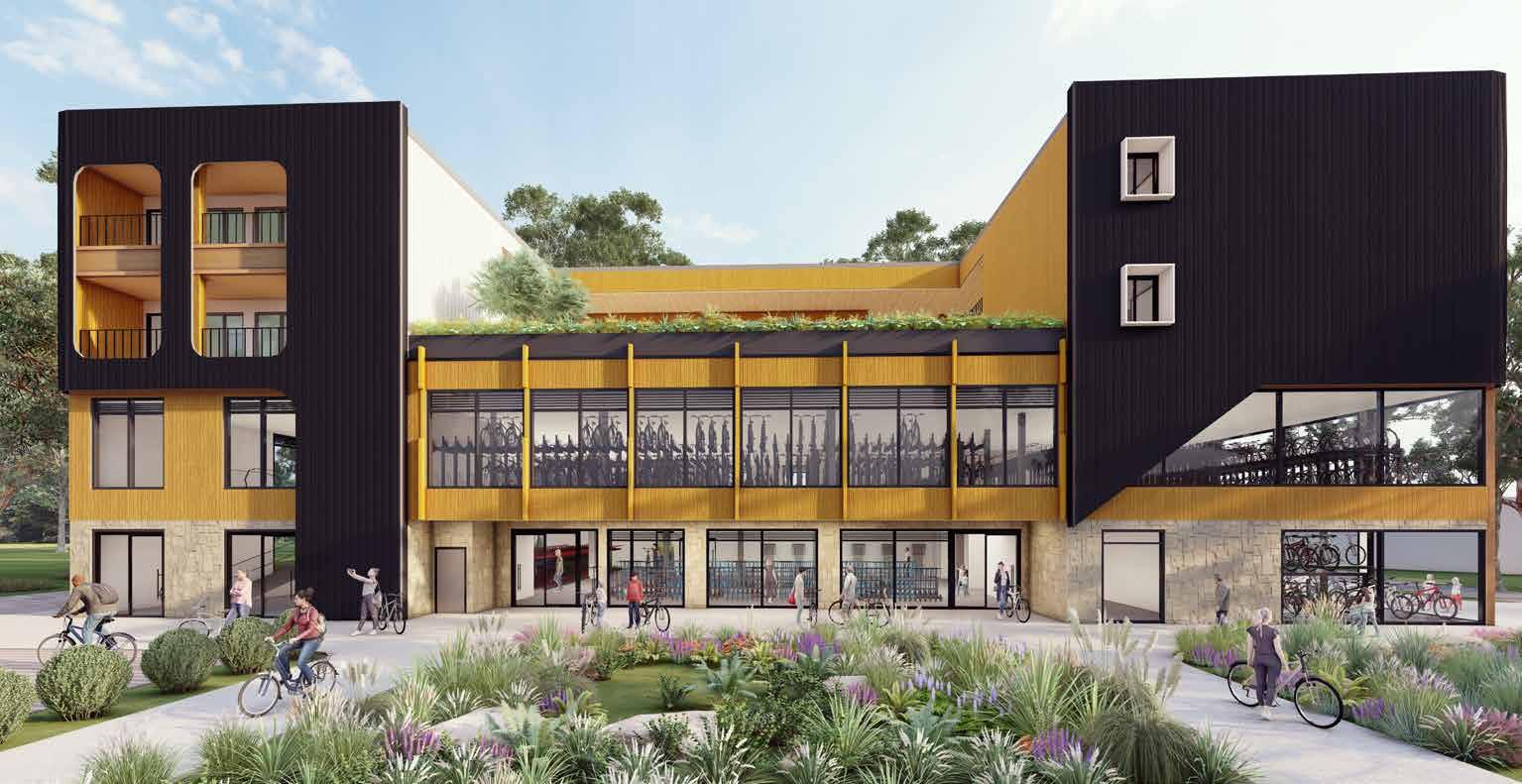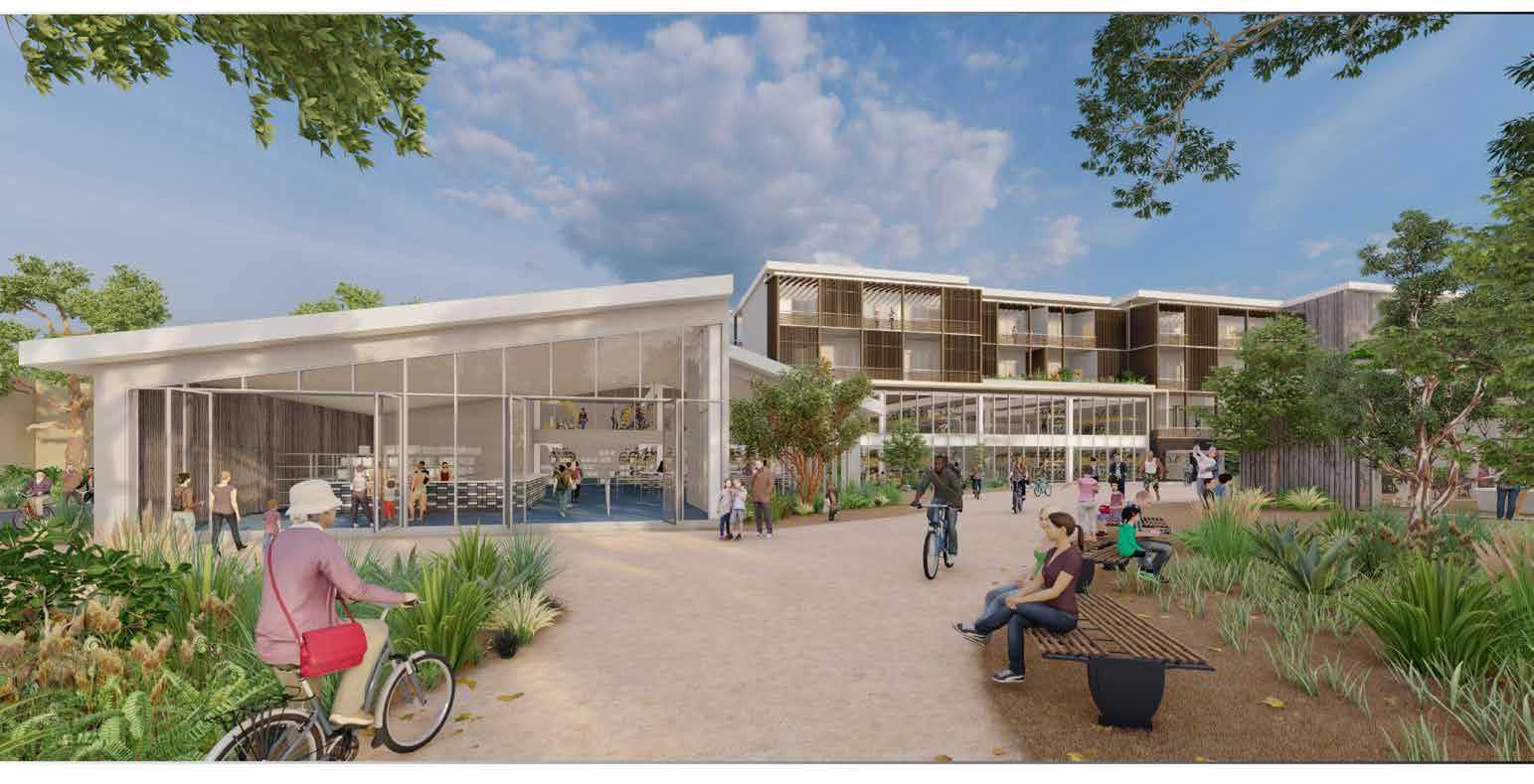
1 minute read
Curtin University
Quokka Quarters
Project Wadjemup (Rottnest Island)
Submission Extract
The proposed Quokka Quarters redevelopment of Pedal & Flipper seeks to meet growing demand for sustainable, community-orientated developments, incorporating a four-level development that would see the hire facility occupy the first two floors and two floors of residential units above that. The integration of residential living space with mixed-use facilities allows for practicality, innovation and versatility, traits that would benefit future developments on the Rottnest Island setting. The project aims to create a cohesive environment of community, nature and built form, promoting bike culture and visitor/tourist-friendly features, and fostering social interaction, without disrupting the history of the island and its native flora and fauna. The development will also integrate Indigenous perspectives that acknowledge the cultural history of the land. The design focuses on use of sustainable materials that have a minimal environmental footprint and contribute towards net zero aspirations, including renewable resources such as responsibly-sourced timber. The forward-facing and flexible aspect of the project is also reflected by the ability of residential modules to be easily disassembled, reassembled and adjusted on a second site, in line with differing visions and requirements. Again, this showcases a commitment to sustainable practices by reducing waste and optimising use of resources.
Project Wadjemup (Rottnest Island)
Submission Extract
The New Heart Pedal & Flipper redevelopment scheme embraces sustainability by ensuring that every unit is composed of recycled steel, which significantly reduces CO2 emissions in construction, in addition to reducing energy and iron ore required. The project has a strong focus on the circular material economy, with mycelium (a root-like structure of fungus), recycled paper and metal industrial waste all helping create sustainable luxury finishes. Meanwhile, Hebel Power Panels have been used for the building’s wall and facades, again offering significant benefits in terms of reductions in embodied carbon and energy. The design incorporates a two-storey bike hire facility under two floors of apartments, which are intended initially to serve as short-stay accommodation for Rottnest Island’s ferry-in, ferry-out workers. The modular construction of the apartments means they can be easily moved at end-oflife (approximately 20 years) to take on a new role as beachfront accommodation for holiday-goers. The project also includes Café Handelbarr, a hybrid café and bar that helps create an informal place for tour groups to meet and aims to introduce a “hole in the wall” culture to Rottnest hospitality. A proposal for a future project to recycle plastic rounds out the project’s net zero aspirations.











